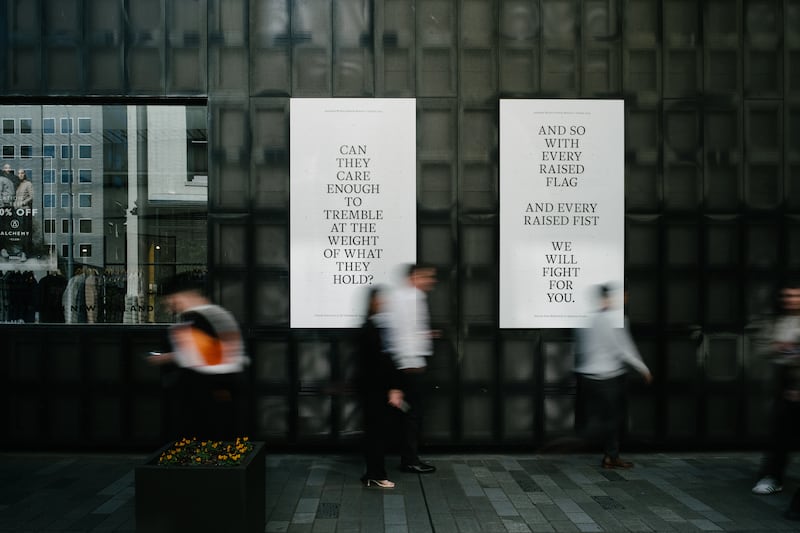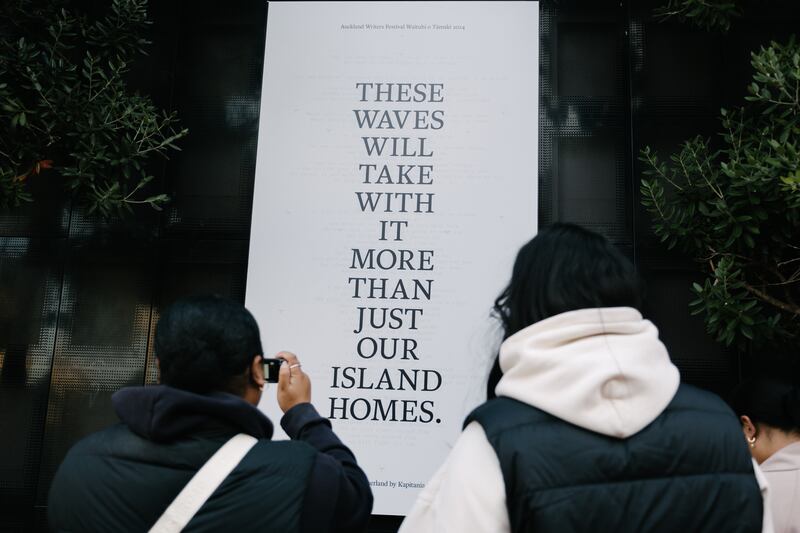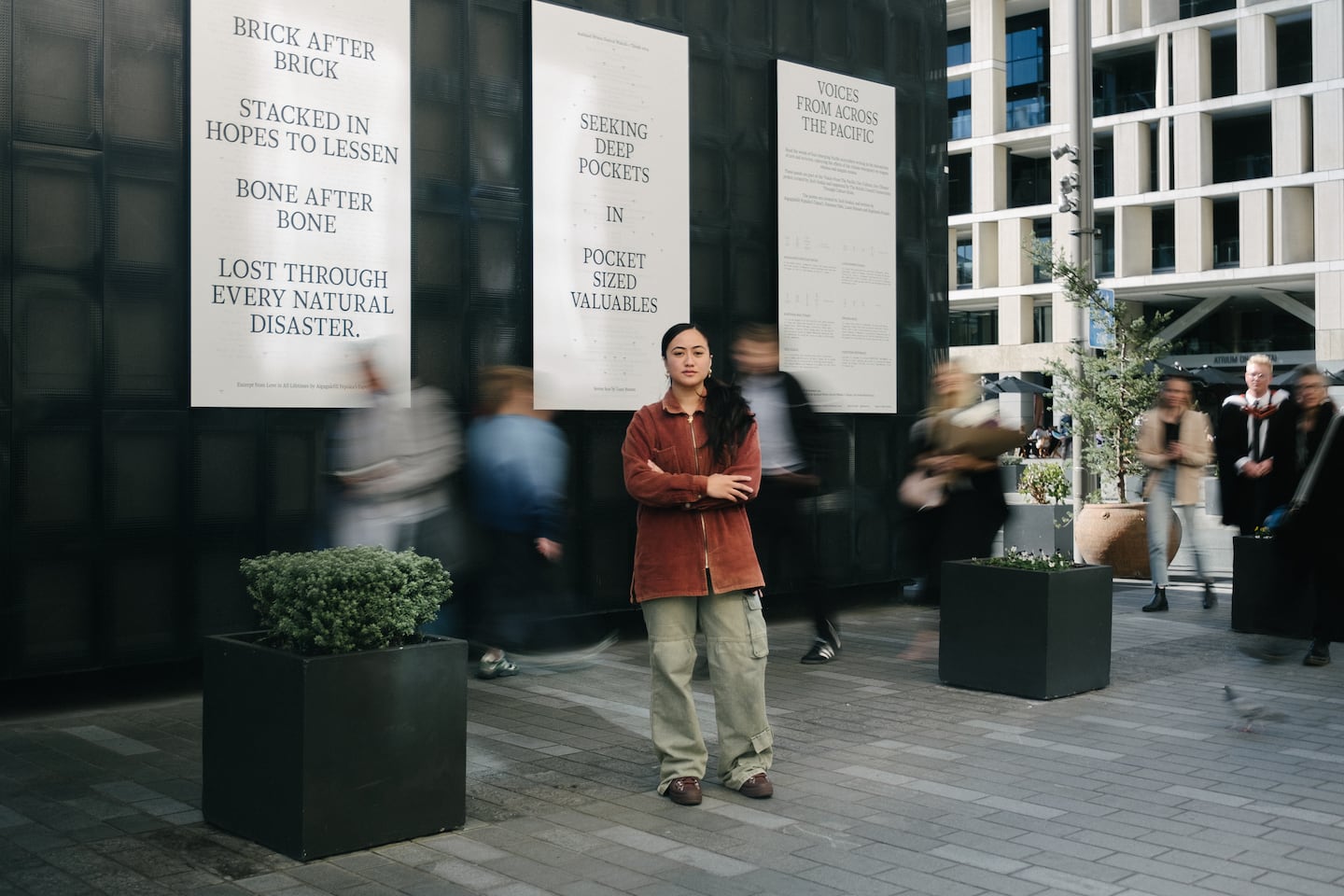Panels in Auckland’s Britomart precinct are showcasing climate poetry from a Pasifika perspective.
Pacific nations are among the most vulnerable to climate change.
The Streetside poetry exhibition was a collaboration between Auckland Writers Festival and Hot Poets - the internationally acclaimed UK climate activist poetry collective.
The project aimed to capture the effects of the climate urgency on tāngata moana.
Curator Zech Soakai wanted to honour the urgency the newer generations have and feel about climate change.
“The work I wanted to do here is about giving voice and celebrating the richness and depth of our young people,” Soakai said.
Soakai noted that in 2017 Pasifika people made up 6% of New Zealand publishing and he wanted to enrich and uplift Pasifika voices.
The poets included in the exhibition are Aigagalefili Fepulea’i Tapua’i, Simaima Palei, Luani Nansen and Kapitania Funaki, all of whom are in their late teens and early twenties.
Designer Aitken Hawkins took the poets’ words and adapted them to panels incorporating the manu as a motif for migration.

Soakai found poets through an Instagram callout in what he called “heart-hunting” for those who really had something to say about the climate. He was overwhelmed and amazed at the level of interest.
“I realised the appetite for our own people to be telling these stories on the environment,” although this made it difficult to choose people and carefully filtered through the Google forms applications. “There’s a synergy across the four poems.”
In the younger poets Funaki and Palei there was a deep grief, which Soakai said was an emotion people from across the Pacific haf come to know very well, as well as the impending doom the climate crisis conjured up. And Tapua’i and Nansen’s poems offered anger, insight and perception.
People love when the art moves them, but they get uncomfortable when the artist is asking them to be moved into action. That’s where the attention lies. Art is art but it’s also a vessel for change. Art shifts culture and evolves culture.
— Aigagalefili Fepulea’i Tapua’i
Nansen wrote a poem about deep sea mining to raise awareness on the issue.
“It’s important for environmentalists to communicate the issue in ways that our people can understand. It’s not just jargon, statistics and the lens that is colonial,” Tapua’i said.
Roots by Palei was about not yet stepping feet on her homeland and the grief that came with not being sure if she would make it. Funaki wrote in Motherland about her motherland disappearing.
“These are the stakes,” Soakai said.

Serendipitously, Soakai reached out to Aigagalefili Fepulea’i Tapua’i while she was doing mahi in Taranaki.
Tapua’i is the community engagement specialist for the Greenpeace Stop Deep Sea Mining campaign.
Love in All Lifetimes is Tapua’i’s first poem to be shared publicly in about three years.
She performed the poem at the Sustainable Business Awards because she wanted to get through to people in business.
“We can of course reward people for their efforts and award companies and everything but we can never forget the stories of the people who have to live through the issue, so that was the heart of the poem that I used for Streetsides,” Tapua’i said.
The poem is a follow-up to Waiting Water a speech that took first place at Storytellers NZ.
In her poem she wanted to hone in on the heaviness but to show how far removed the media was from how it actually feels.
“I think poetry is a great way to humanise the people who live through those issues,” she said.
“There’s the victimhood, living through the tragedy and all of that but that isn’t the end all be all. You have communities coming together to assess the loss and damages to see what’s the first line of action. It’s the communities that come together and have to live with the after effect and not just the news cycles of the natural disasters.”
There are a few weeks left to check out the poetry panels in Britomart. In mid June they will be replaced with panels by Hāmiora Bailey in celebration of Matariki.
You can read the full poems from each of the poets here.




